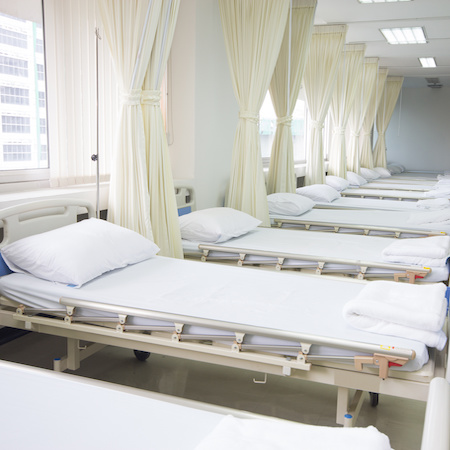The NHS is now ‘under-bedded’ according to a new report by the Royal College of Emergency Medicine (RCEM), which recommends an additional 4,500 beds should be made available across the UK between now and next winter. Furthermore, it says approximately 8,500 more beds should be added over the next five years.
Part of the Acute Insight Series, ‘Beds in the NHS’ says a broad consensus has developed that the reduction in the number of NHS beds – almost 25,000 since 2010/11 – has happened too quickly.
The shortage of beds is having an adverse impact on patient care, A&E staff and ambulance services, with patients being forced to endure long waits to be admitted and emergency care staff trying to provide the care that would normally be provided on a ward, increasing delays in ambulance handover and even the cancellation of planned operations.
Cuts to mental health beds have added extra pressure as patients who should be in a mental health setting are forced to seek treatment in the acute sector. The number of mental health admissions to general and acute hospital beds exceeds the number of admissions to mental health beds, the report states.
In addition to its recommendation for new beds, the RCEM report wants any new hospital buildings to increase the proportion of side rooms in order to restrict the number of beds made unavailable through infection, and reduce nosocomial infections.
In 2019, the Guardian reported Simon Stevens, the then NHS England Chief Executive, admitting that the policy of removing beds from the system would need to be reversed. The RCEM adds: “While the process of reintroducing more beds to the system will not be straightforward, it is clear that more must be made available as soon as possible if the NHS is to fully meet the UK population’s health needs.”











